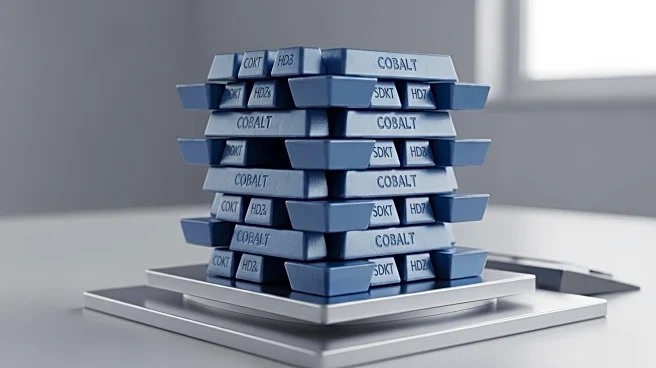What's Happening?
The Democratic Republic of Congo has announced that it will revoke cobalt export quotas from companies failing to meet allocated volumes or breaching environmental or tax regulations. This policy, effective October 16, aims to control cobalt exports under a new system following a ban intended to manage oversupply and influence global prices. Major producers like CMOC and Glencore have secured significant quotas, while other companies face strict compliance requirements. The move is Congo's most assertive effort to regulate the critical battery metal, potentially affecting global electric vehicle supply chains.
Why It's Important?
Congo's decision to enforce strict export quota compliance is crucial for the global cobalt market, as the country is the world's largest producer of this essential component for electric vehicle batteries. The policy could lead to supply chain disruptions if major producers fail to comply, impacting the electric vehicle industry and related sectors. It also reflects Congo's strategic approach to maximizing revenue from its natural resources, which is vital for national economic development.
What's Next?
Companies must adhere to compliance requirements, including prepayment of mining royalties, to retain their quotas. Unused allocations will be forfeited and reallocated to a strategic reserve for national projects. The policy may prompt companies to enhance operational efficiency and environmental practices to avoid penalties. Stakeholders in the electric vehicle industry will be closely monitoring these developments, as they could influence production costs and market dynamics.
Beyond the Headlines
The policy highlights the geopolitical significance of cobalt and the challenges of resource management in developing countries. It raises ethical considerations regarding the environmental and social impacts of mining activities and the responsibilities of multinational corporations operating in resource-rich regions.










